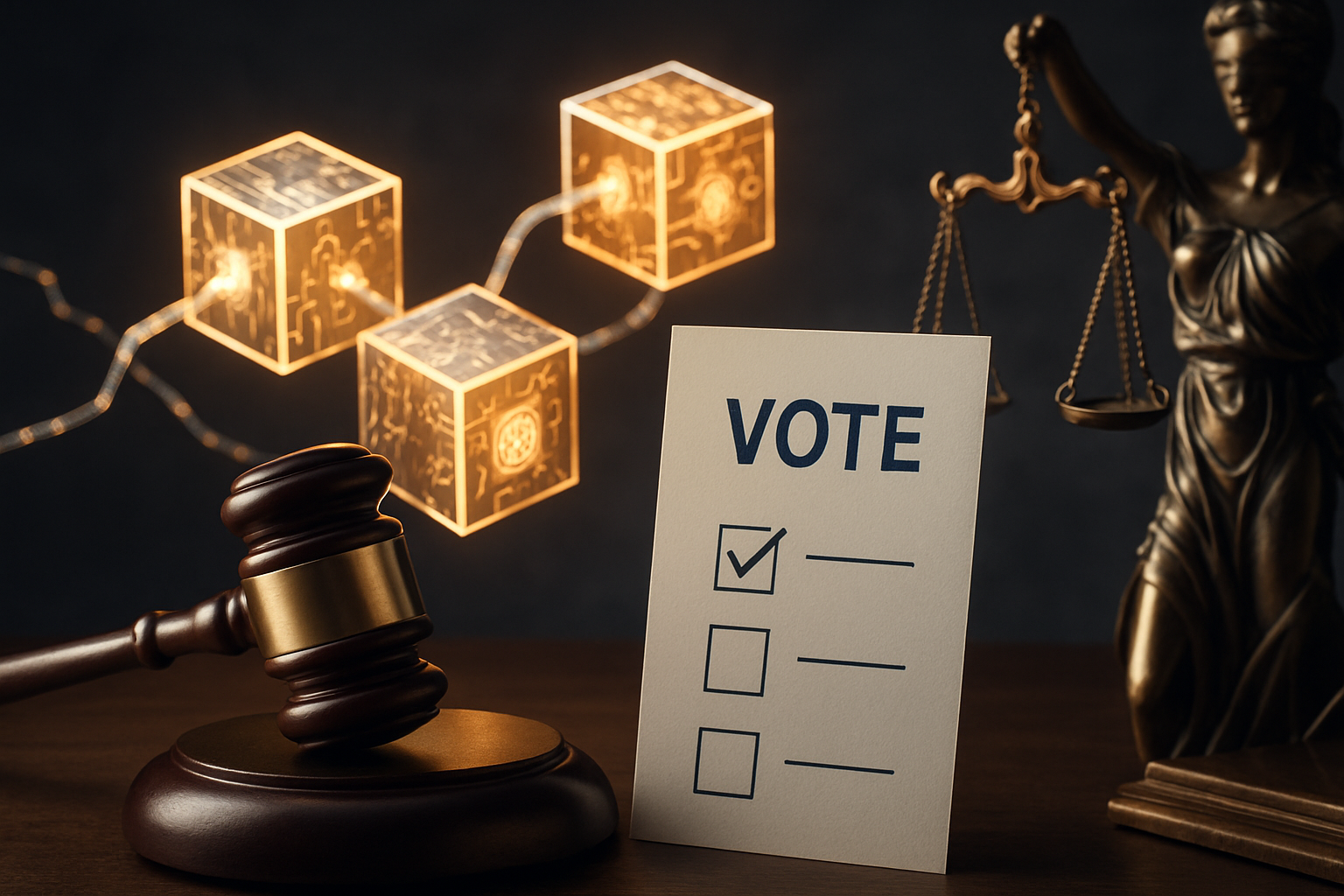Blockchain's Legal Frontier: Smart Contracts in Jurisprudence
Introduction: In the rapidly evolving landscape of digital technology, smart contracts are emerging as a disruptive force in legal practice. These self-executing agreements, powered by blockchain technology, are challenging traditional notions of contract law and raising intriguing questions about the future of legal agreements.

The fundamental architecture of smart contracts relies on if-then statements embedded in code. For instance, if a specified event occurs, such as a payment being made, the contract automatically triggers the next step, like transferring ownership of an asset. This automation promises to streamline various legal and business processes, potentially reducing costs and minimizing disputes.
Legal Recognition and Challenges
As smart contracts gain prominence, legal systems worldwide are grappling with how to integrate them into existing frameworks. The question of legal recognition is paramount. Some jurisdictions, like Arizona and Tennessee in the United States, have passed legislation explicitly recognizing smart contracts as legally binding. However, many legal systems are still in the process of determining how to classify and regulate these digital agreements.
One of the primary challenges is the interpretation of smart contract code. Traditional contracts are written in natural language, subject to interpretation by courts. Smart contracts, however, are written in programming languages, raising questions about who should interpret them in case of disputes – judges or computer experts?
Enforceability and Dispute Resolution
The self-executing nature of smart contracts presents unique challenges in terms of enforceability and dispute resolution. While proponents argue that smart contracts reduce the need for litigation by automating compliance, critics point out that they may not account for all possible scenarios or external factors that could affect contract performance.
Traditional contract law allows for concepts like force majeure or frustration of purpose, which can excuse non-performance under certain circumstances. Implementing such nuanced legal concepts in the rigid structure of smart contract code presents significant challenges. Legal systems must develop new mechanisms to address disputes arising from smart contracts, potentially involving a hybrid approach combining traditional legal principles with technological expertise.
Implications for Legal Practitioners
The rise of smart contracts is reshaping the role of legal professionals. Lawyers are increasingly required to understand the technical aspects of blockchain and programming to effectively advise clients and draft smart contracts. This shift is leading to the emergence of a new breed of legal professionals – those who can bridge the gap between law and technology.
Law schools and legal education programs are beginning to incorporate courses on blockchain and smart contracts, recognizing the growing importance of these technologies in legal practice. The legal industry is also witnessing the rise of legaltech startups focused on developing tools and platforms for creating and managing smart contracts.
Regulatory Landscape and Future Outlook
As smart contracts become more prevalent, regulatory bodies are working to establish guidelines and standards. The European Union, for instance, is exploring the potential of smart contracts within its Digital Single Market strategy. In the United States, various state-level initiatives are underway to create regulatory frameworks for blockchain and smart contracts.
The future of smart contracts in law looks promising yet complex. As these digital agreements become more sophisticated, they may incorporate artificial intelligence to handle more nuanced scenarios. This evolution could lead to smart contracts that can adapt to changing circumstances, further blurring the lines between code and traditional legal language.
However, significant challenges remain. Issues of data privacy, cross-border enforcement, and the integration of smart contracts with existing legal infrastructures need to be addressed. The legal community must work closely with technologists to develop standards and best practices that ensure smart contracts can function effectively within established legal systems.
In conclusion, smart contracts represent a paradigm shift in how legal agreements are created, executed, and enforced. As this technology continues to evolve, it promises to bring greater efficiency and transparency to legal processes. However, it also presents complex challenges that will require innovative solutions from legal practitioners, policymakers, and technologists alike. The journey of integrating smart contracts into the fabric of jurisprudence is just beginning, and it promises to be a fascinating evolution in the intersection of law and technology.





